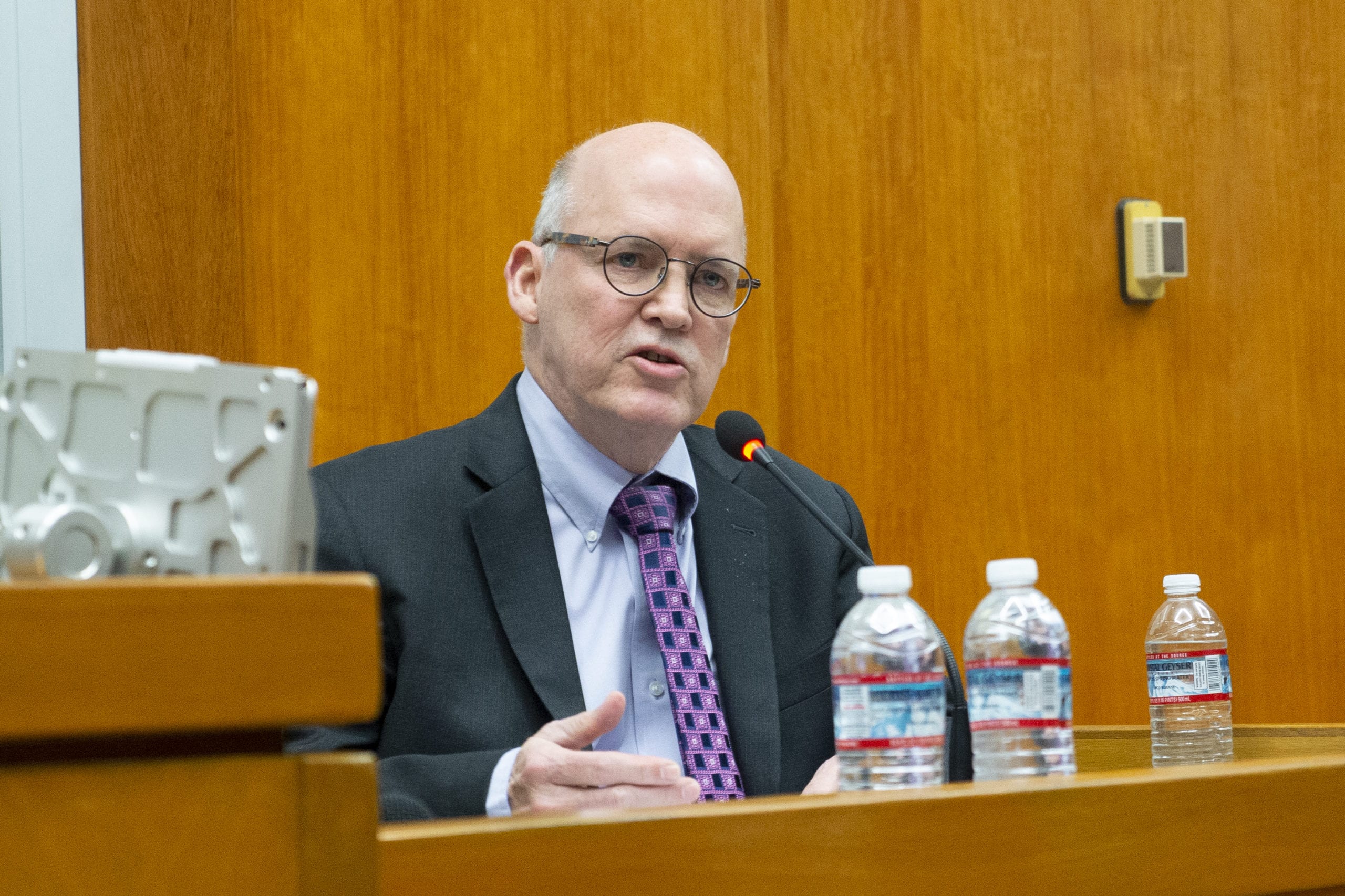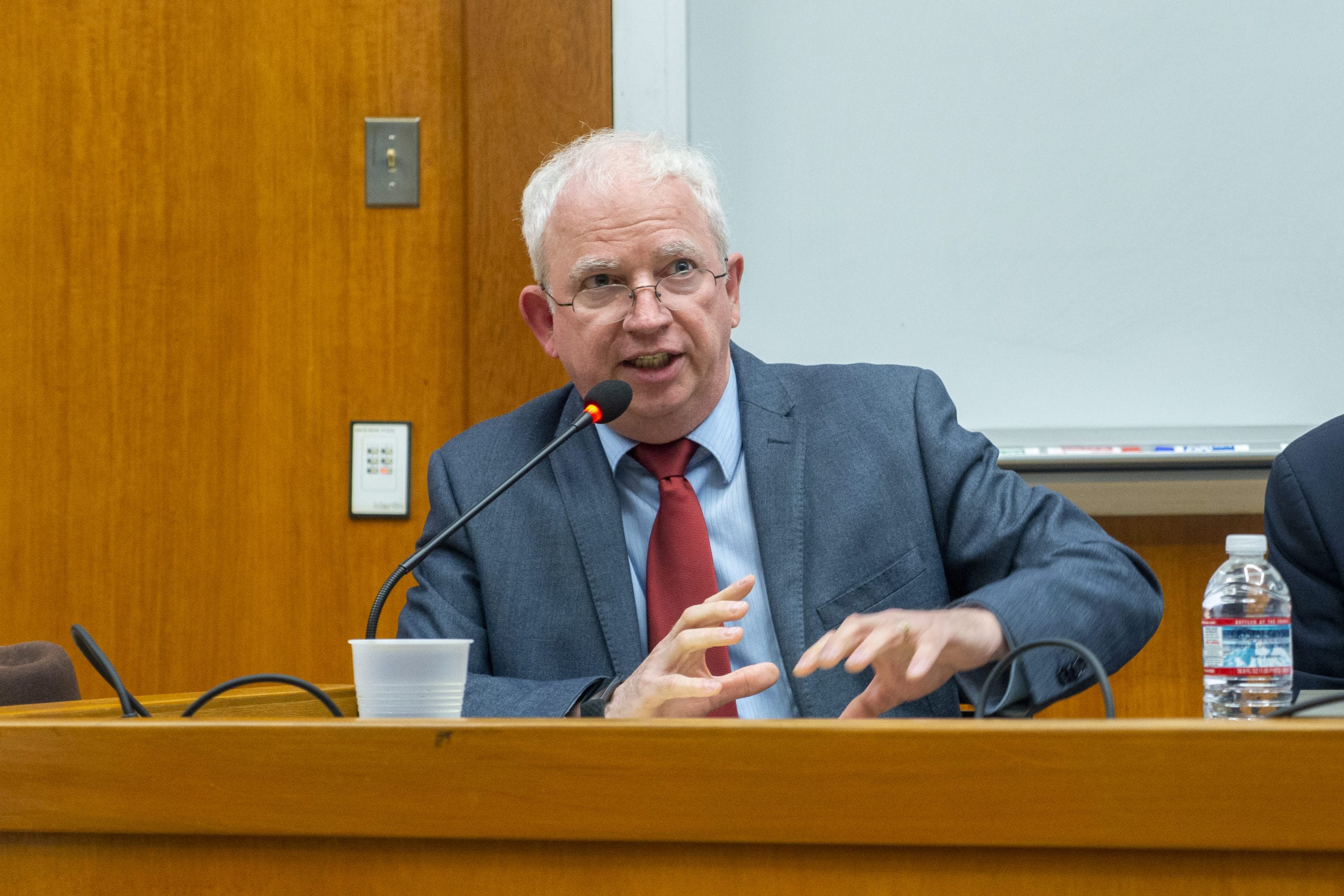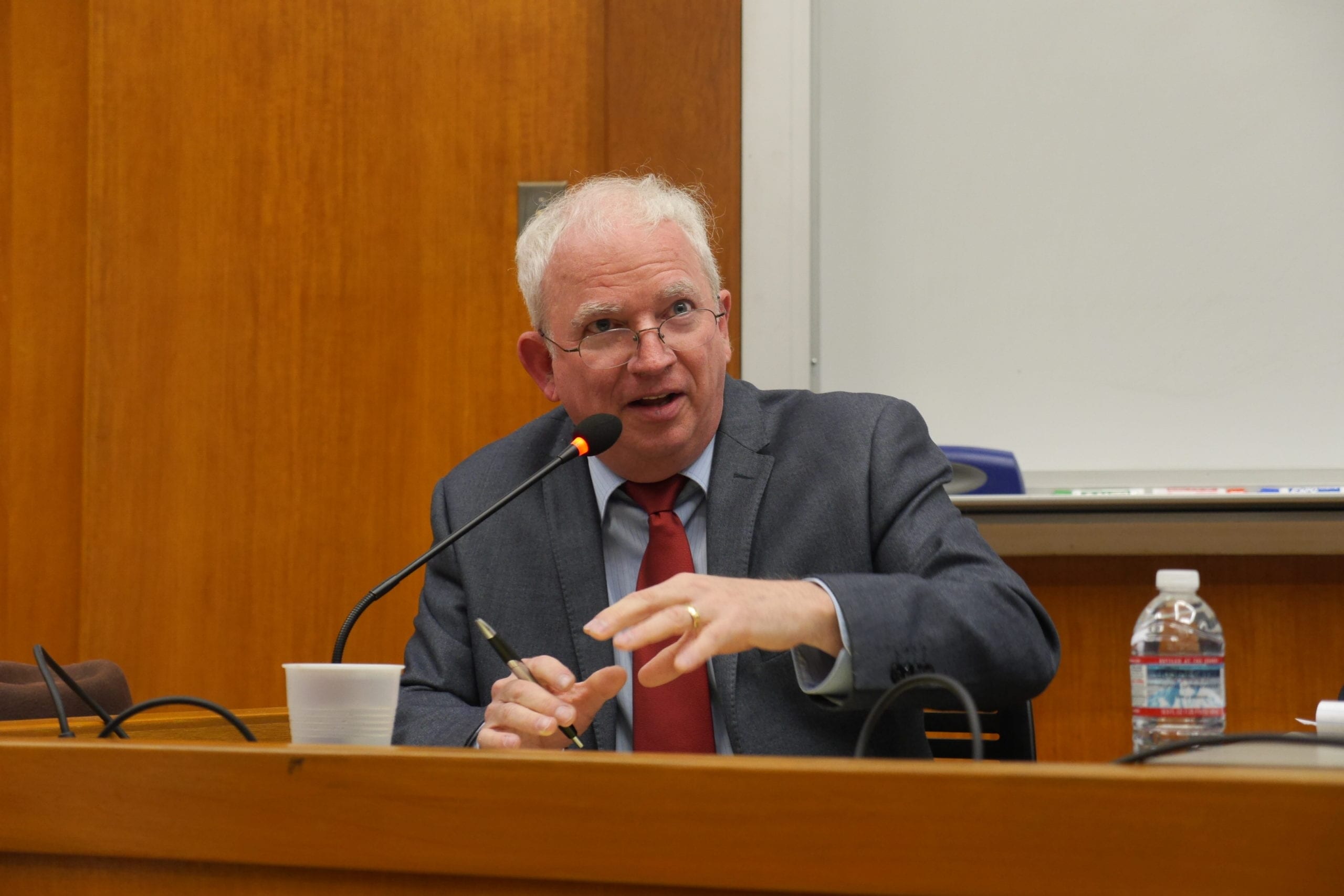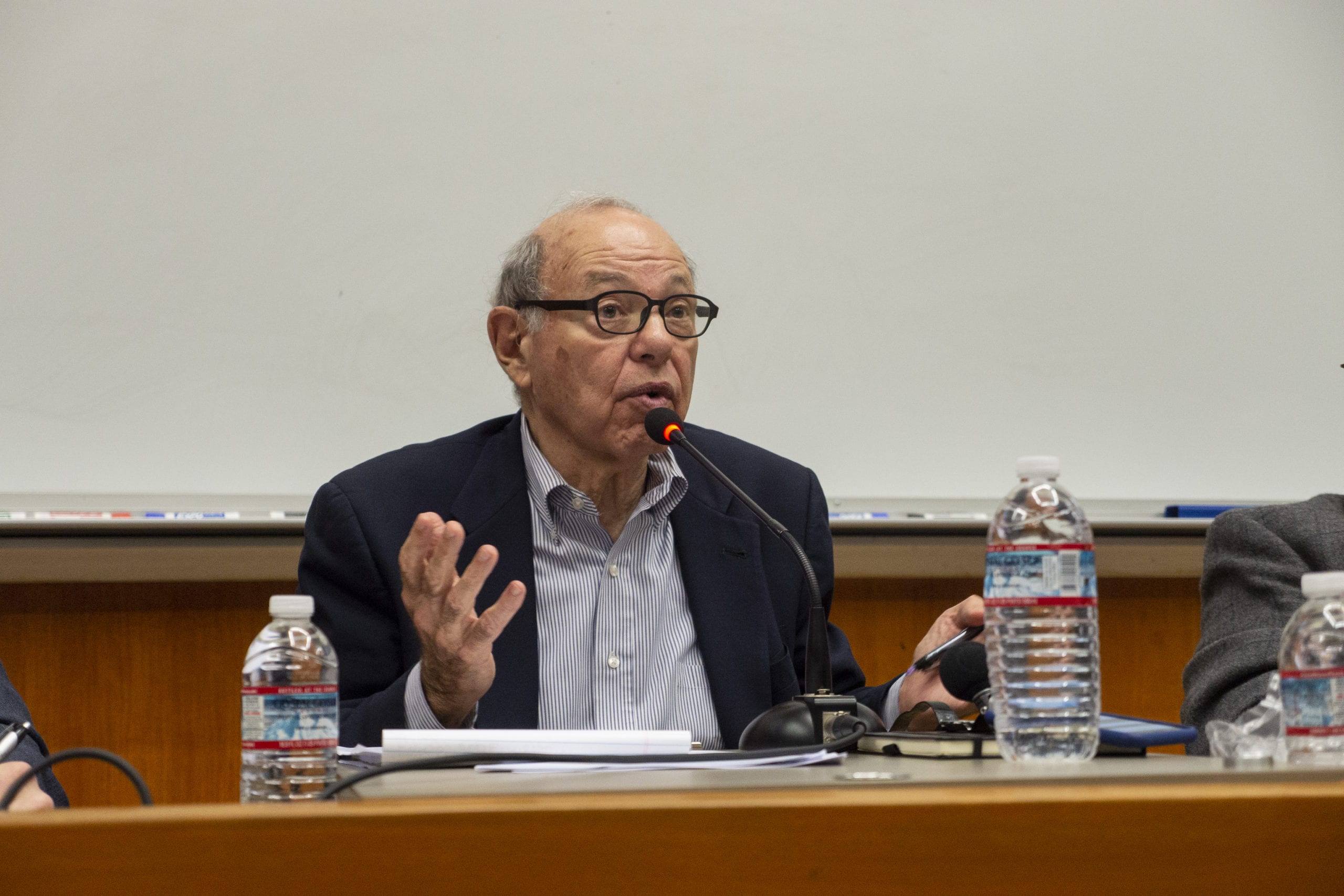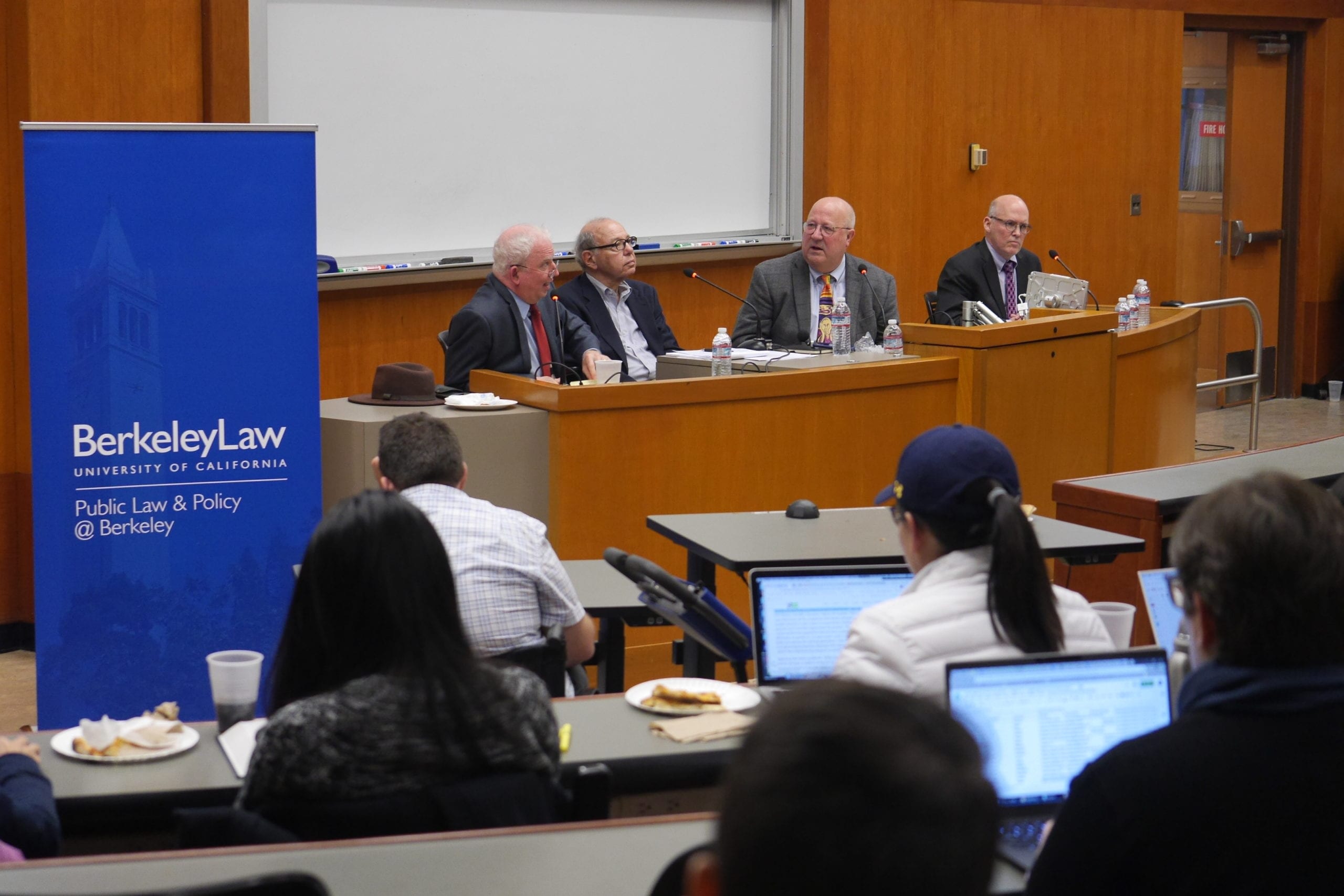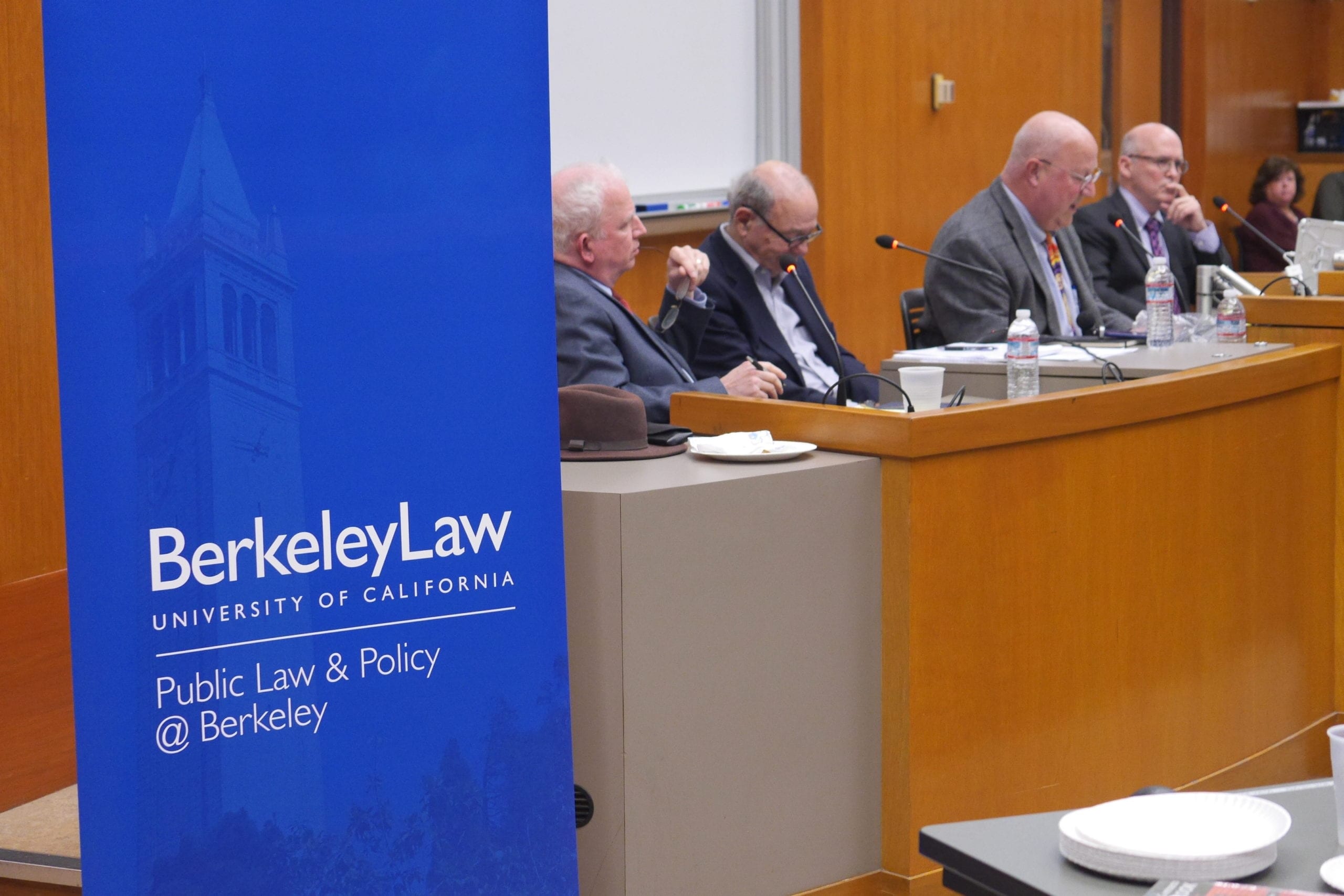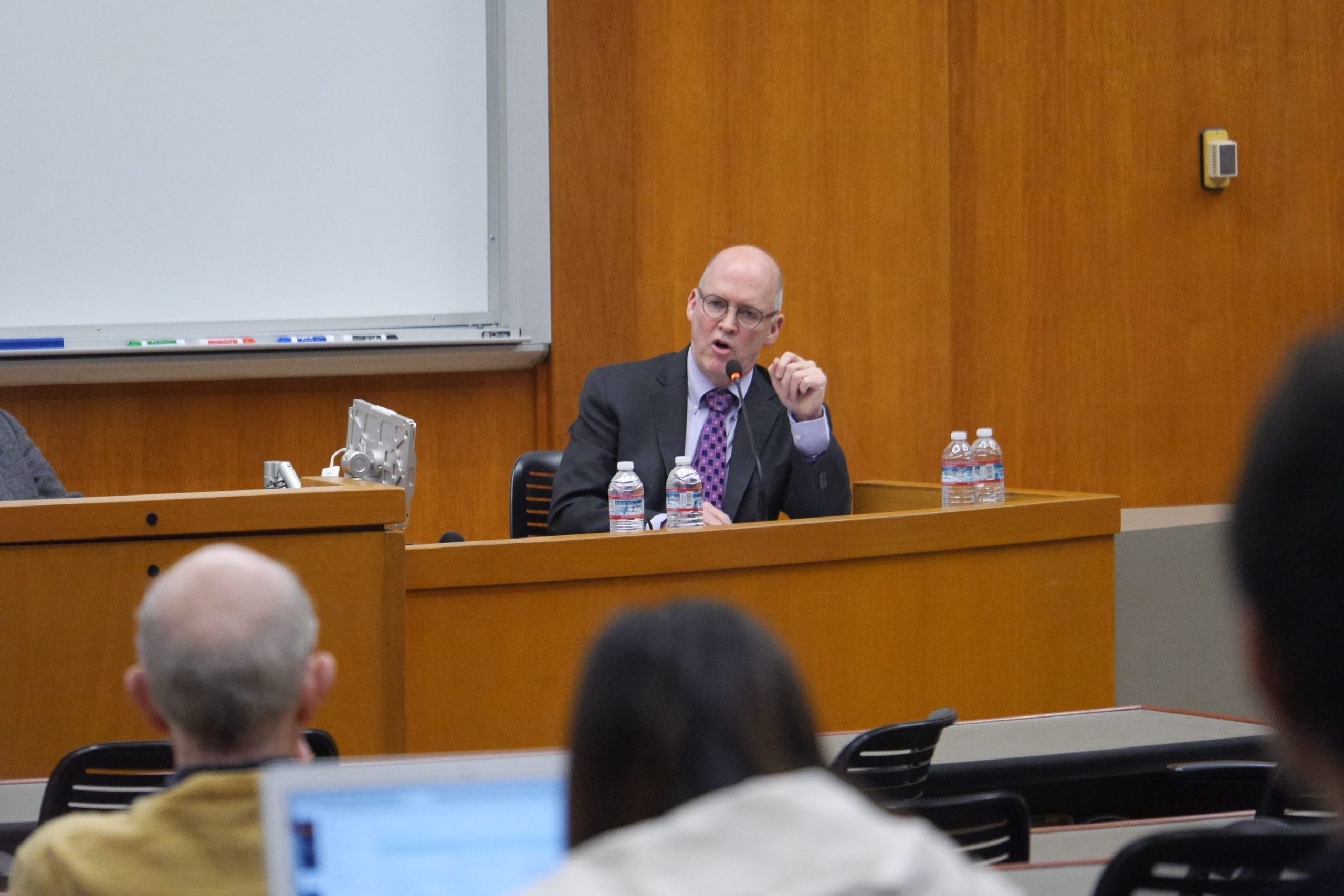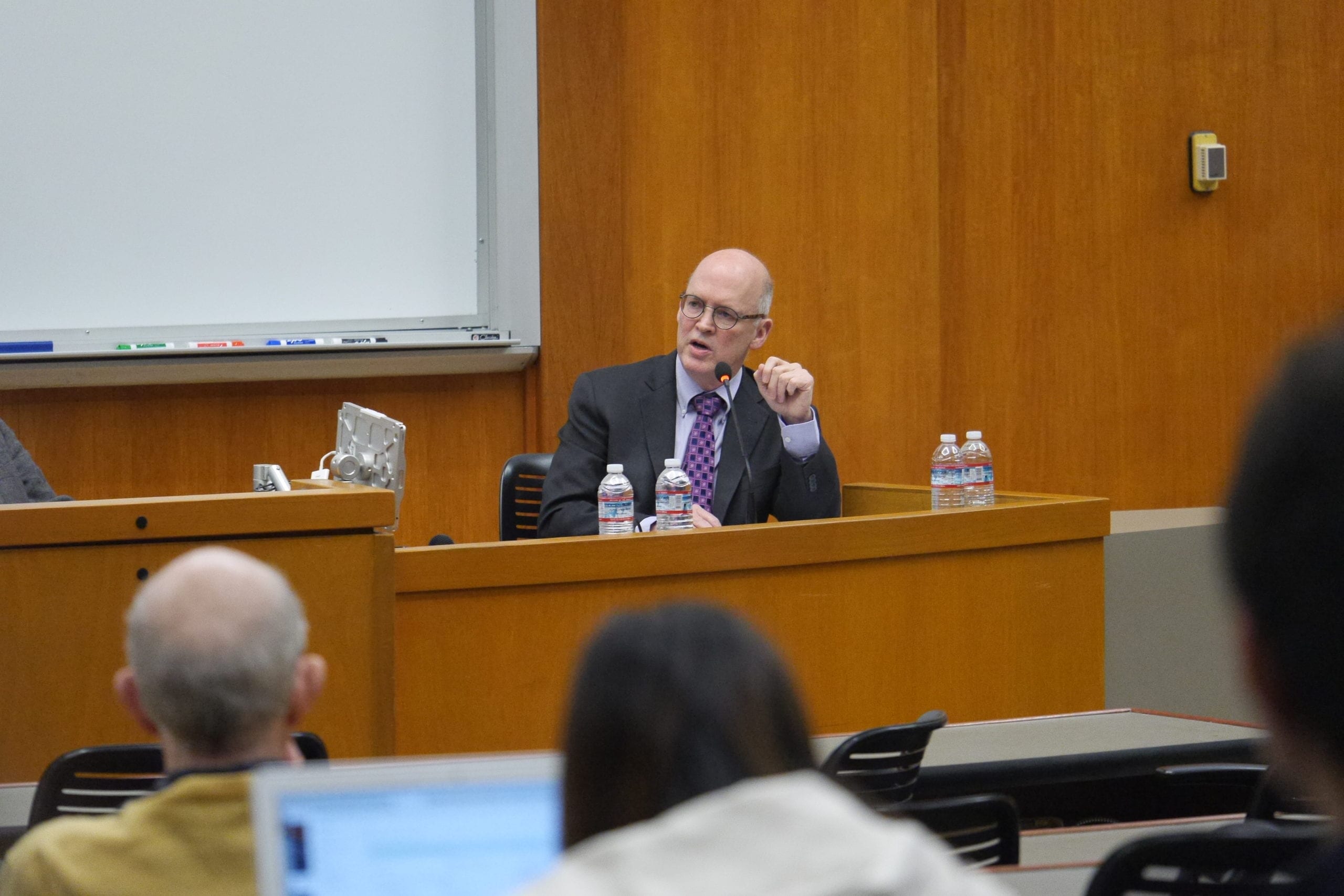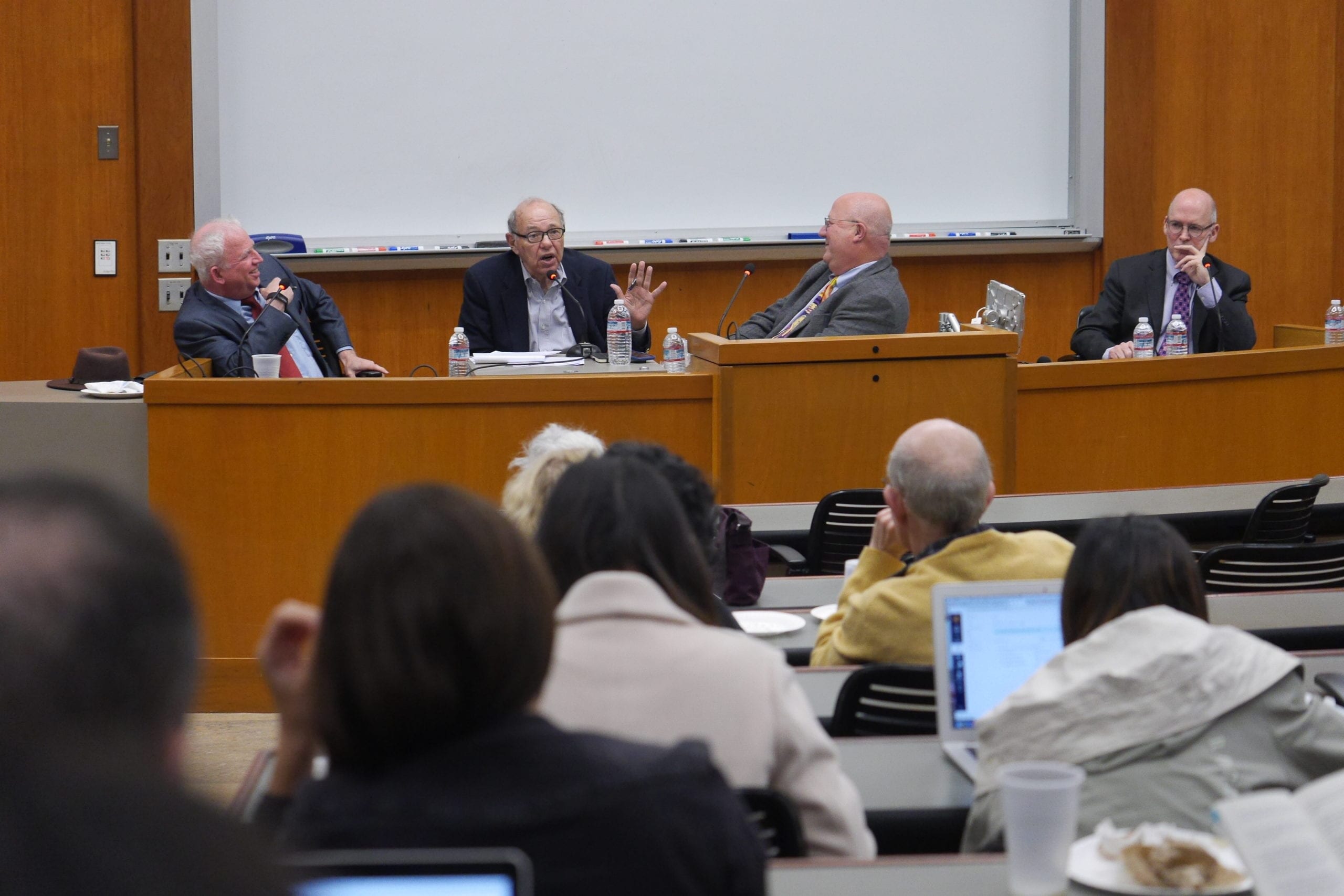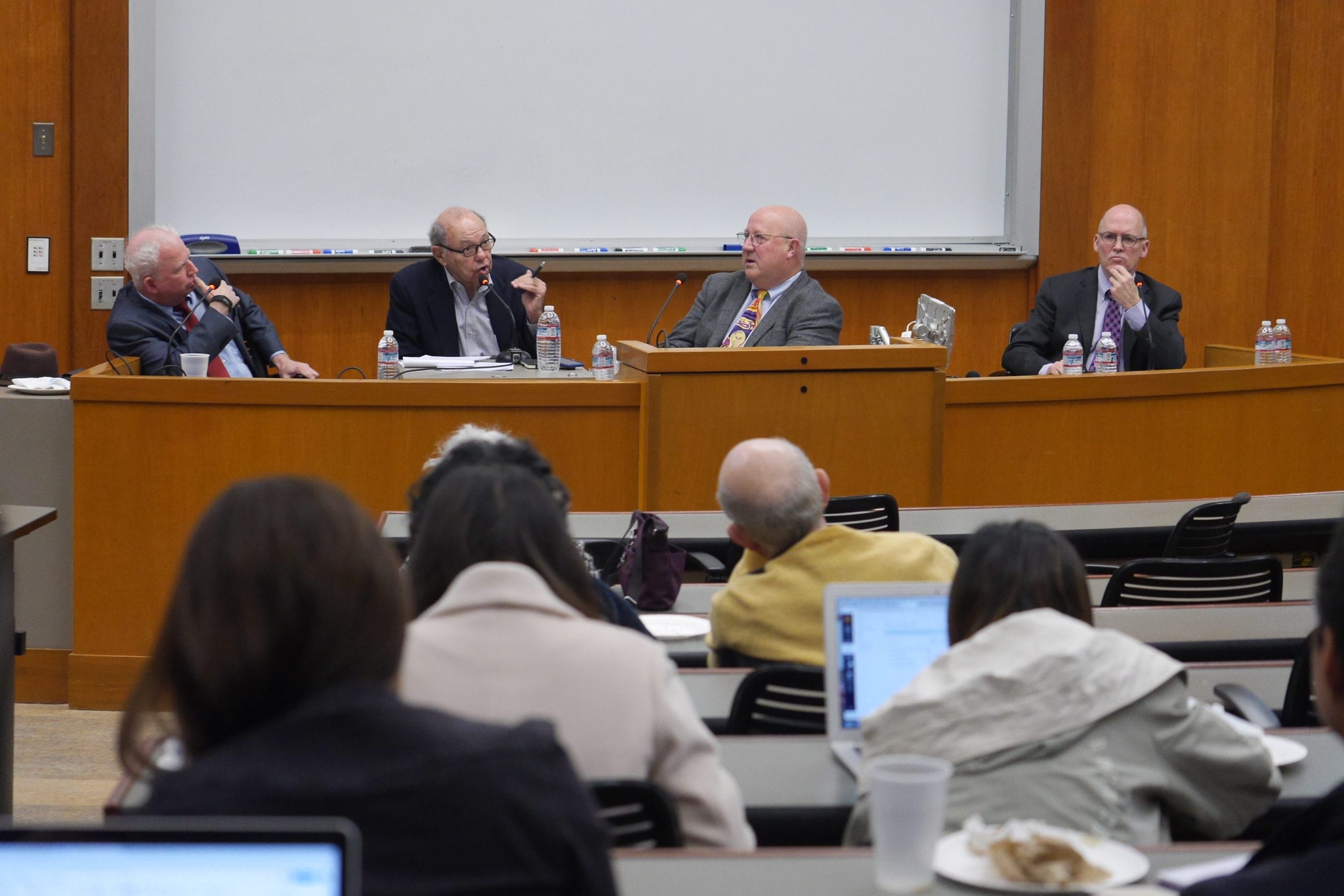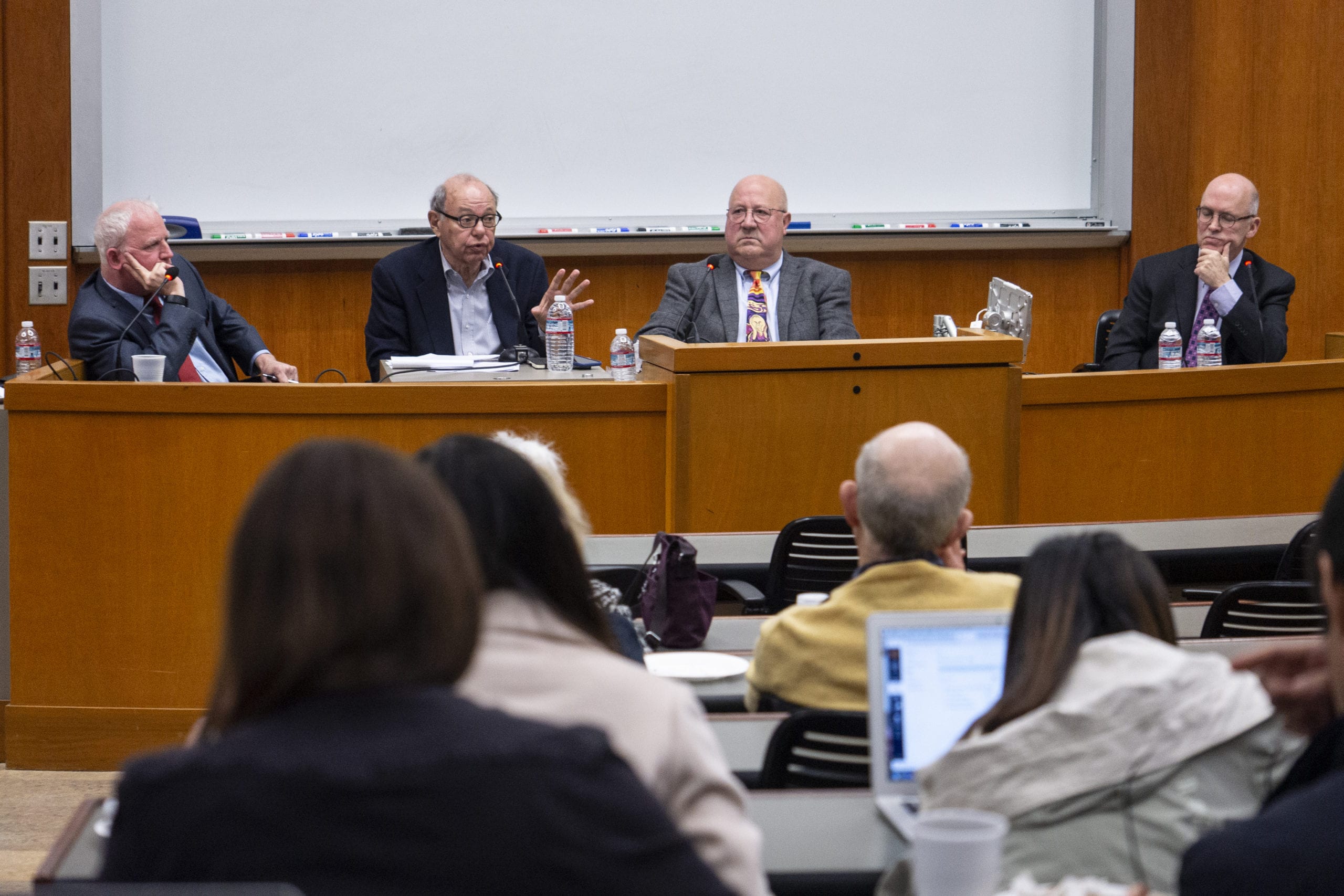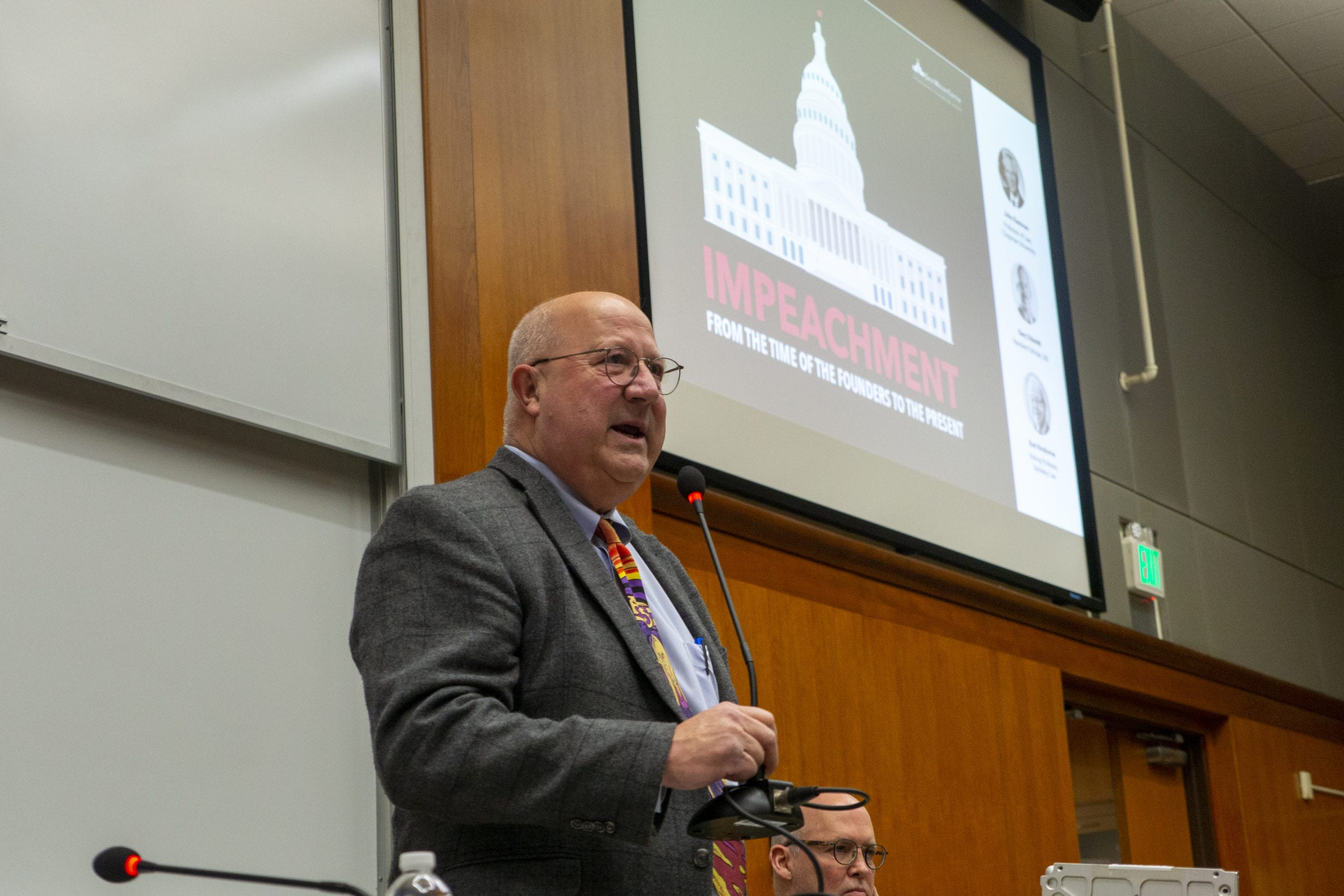Impeachment from the Time of the Founders to the Present
Tuesday, January 21, 2020 | 12:45 – 2:00 PM
LAW | Room 105
Event Video
Panelists
Dr. John C. Eastman is the Henry Salvatori Professor of Law & Community Service at Chapman University Fowler School of Law, and also served as the School’s Dean from June 2007 to January 2010, when he stepped down to pursue a bid for California Attorney General. Professor Eastman is also affiliated with the Claremont Institute as a Senior Fellow and Director of the Institute’s Center for Constitutional Jurisprudence, which sponsors Chapman’s constitutional jurisprudence clinic.
Gary J. Schmitt is a resident scholar in strategic studies and American institutions at the American Enterprise Institute (AEI), where he studies national security and longer-term strategic issues affecting America’s security at home and abroad. In addition, Dr. Schmitt writes on issues pertaining to American political institutions, the Constitution, and civic life.
Burt Neuborne is a visiting professor and the Norman Dorsen Professor of Civil Liberties and founding Legal Director of the Brennan Center for Justice at NYU Law School. For more than 50 years, he has been one of the nation’s foremost civil liberties lawyers, serving as National Legal Director of the ACLU from 1981-86, Special Counsel to the NOW Legal Defense and Education Fund from 1990-1996, and as a member of the New York City Human Rights Commission from 1988-1992.
Event Summary
On Tuesday, January 21, undergraduates and graduate students, as well as members of the local community, gathered in a packed lecture room at Berkeley Law to discuss the issue of impeachment. The event, titled “Impeachment: From the Time of the Founders to the Present,” featured three panelists: John Eastman (Professor of Law, Chapman University), Gary Schmitt (Resident Scholar, American Enterprise Institute), and Burt Neuborne (Visiting Professor, Berkeley Law). Moderated by Steven Hayward (Senior Resident Scholar, Institute of Governmental Studies at UC Berkeley), each speaker articulated his own views on the history of impeachment and its implications for President Trump’s Senate trial this week.
Schmitt kicked off the discussion by outlining the origins of impeachment. He first clarified what George Mason famously declared during the U.S. Constitutional Convention of 1787 to be “high crimes and misdemeanors.” Arguing that Mason did not intend for the phrase to take on a criminal meaning, Schmitt asserted that those words are instead supposed to prevent a president from acting against the Constitution and the morality of the Republic. Moreover, the phrase “high crimes and misdemeanors” is meant to address a president’s discretionary authority and is a matter of high political, rather than legal, principle.
The panel then turned to Eastman, who expressed his disapproval of how impeachment has, in his opinion, become a partisan witch-hunt. In other words, he urged the audience to consider the dangers of impeaching a sitting president solely due to political opposition. Neuborne expanded upon Eastman’s line of questioning by looking at the ways in which the political process of impeachment has been judicialized. Specifically, he argued that impeachment must consider the intent of the President and therefore should look at the case of President Trump through the lens of mixed motives. In this way, the question of President Trump’s impeachment doesn’t center on whether or not he had any personal reasons for withholding aid from Ukraine; rather, it rests on whether or not his individual political motives outweighed his foreign policy ones.
A lively Q&A concluded the event, with members of the audience asking about Congress’s responsibility to decide on impeachment and the potential use of the 25th Amendment in removing President Trump from office. All three speakers expressed their apprehension about the possible overuse of impeachment, but also voiced concern about the standard for impeachment potentially being too high. While all three speakers ultimately agreed that they would not vote to impeach President Trump, and do not believe the Senate will vote to remove him, Neuborne came closest to saying that he would. Believing that impeachment was dangerous on the eve of an election, he asserted that the final vote should be placed in the hands of the American people, come November.
Event Flyer and Podcast
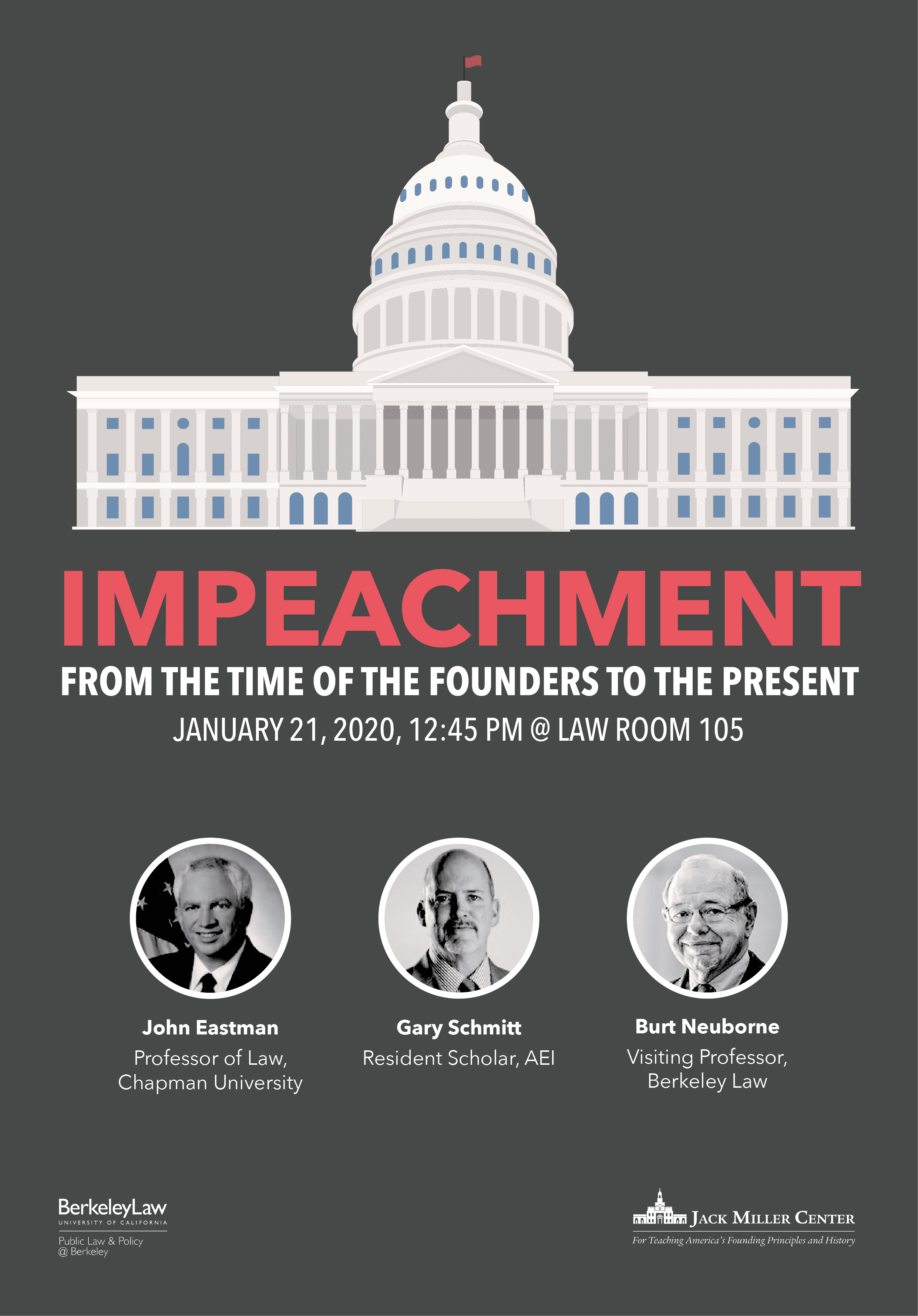
Event Photos
